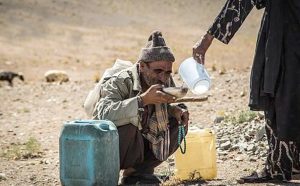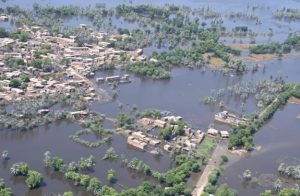
Islamabad:
The Chairperson of the National Assembly’s Standing Committee on Climate Change, Munaza Hassan, strongly criticized the ministry’s inefficiency and poor performance during a meeting held at Parliament House. She warned that climate change-induced disasters were wreaking havoc across the country and cautioned that next year’s monsoon would be 22 percent more intense.
According to Dawn News, committee member Shaista Pervaiz said, “I am from the government and Owais Jhakhar is from the opposition, yet unfortunately, both of us are crying out in frustration because the ministry is doing nothing.”
Munaza Hassan expressed anger that ministry officials failed to provide briefing papers to members on time, recounting that she could not participate effectively in a regional conference due to the delay. “The ministry failed to provide a proper briefing,” she remarked.
Admitting his ministry’s shortcomings, the Secretary for Climate Change apologized and assured members that briefing documents would be delivered to all members at least three days before any future event.
Committee member Gustasab Khan warned, “Excessive water is flowing in from India, posing serious risks. We knew about this threat, yet no preparations were made.” The Secretary, however, clarified that the issue was not about Indian water releases but rather about dams filling up and discharges occurring accordingly. He stressed the need for building dams and ensuring the proper use of land, while noting that the Water Resources Ministry should brief the committee on such matters.
Opposition member Owais Jhakhar sharply criticized both the ministry and the National Disaster Management Authority (NDMA), stating that his district, Layyah, was currently devastated by floods. “Entire villages—Jan Lohanch Nasheeb, Moza Jhakhar, Moza Khanwala, and Moza Kalro—are submerged. Farmers’ homes have been destroyed. Committees have existed for over a year and a half, but what results have we seen?” he asked.
He further complained that despite repeatedly summoning NDMA for four months, its officials never appeared, and when they eventually did, they gave what he described as a “worthless briefing.” He warned that if protective embankments around Layyah were breached, the entire city would drown. “Tell me—whom should I approach?” he demanded.
Government lawmaker Tahira Aurangzeb assured him that sufficient funds would be arranged. The Secretary of Climate Change responded that affected districts could be included in official lists of disaster-hit areas and promised to connect him with Punjab’s Chief Secretary.
Shaista Pervaiz launched further criticism of the parliamentary committee and the ministry, saying, “We are merely playing at committees in Parliament. I am from the government, Owais Jhakhar is from the opposition, but both of us are shouting in vain. No real work is happening. There should be an inquiry into the cutting of trees in Khyber Pakhtunkhwa. Without government support, nothing can be achieved. I am exhausted from raising these concerns and am even considering resigning from this committee.”
Chairperson Munaza Hassan said the committee had forwarded many recommendations, some of which had been implemented. She also raised concerns about deforestation in Kashmir, Gilgit-Baltistan, and the Margalla Hills, blaming powerful timber mafias. “Entire hotels have been built from wood. Who gave this permission? These are mafias destroying our forests,” she said.
Committee member Shazia Sobia Soomro proposed summoning the Climate Change Authority, to which the Chairperson responded that if its members failed to appear, summons would be issued. Shaista Pervaiz also held the timber mafia responsible for widespread destruction in Azad Kashmir and KP, adding that repeated warnings over the state of Rawal Dam had gone unheeded for years.
During the session, the Chairperson also scolded the Secretary of Islamabad Transport Authority over vehicle emissions, saying, “Rules have existed since 2008, yet only now has it occurred to you to test vehicle smoke? Incompetent individuals should not hold such posts.”
The meeting further discussed the formation of a working group on e-waste and the drafting of regulations in line with EU policy. Officials, however, admitted that no proper recycling mechanism currently exists in Pakistan.
It was also revealed that the water from the Parliament Lodges treatment plant was unsafe and unfit for consumption. The committee ordered immediate testing of the water. On hospital medical waste, officials from the Environmental Protection Agency (EPA) briefed that only a few hospitals in Islamabad had proper waste management systems. Six companies collect medical waste—two in Islamabad and four in Rawalpindi—which is then transported to Rwatt and Khyber Pakhtunkhwa.




